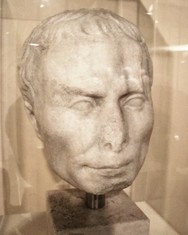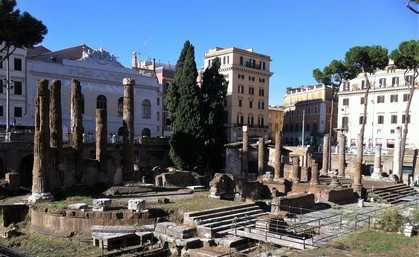
One of the oldest laws, dating back to the kingdom era, was the prohibition for soldiers to camp in town.
The flat area of ancient Rome next to the Tiber river is where the army settled.
This neighbourhood is still named ‘Campo Marzio’ – the field of the god of war Mars (Ares in Greek) now.
Rome is a city where we live with the awareness of our history and the name ‘Campo Marzio’ is an example of it: we still recall what happened there over 2000 years ago. When in imperial time the same area was given splendid public buildings and facilities the army moved across the river in the area known as Vatican.
Neither the army nor the military leaders were allowed in the city of Rome.
According to this law generals, who were also consuls or senators, couldn’t join the political meetings held in the senate house in the Roman Forum.

Pompeii the Great, who was at the same time a political and military leader, found a ploy:
He built a ‘Curia’ , or senate house, outside the ‘pomerio’ the sacred and physical limit of republican Rome.
Pompey Curia became the one used when he was in town.
Similarly Julius Caesar used the curia of Pompey after he got the imperium to led the war against the Parts, whose expedition would have departed three days after his assassination.
That’s why he was murdered below the statue of his rival Pompey, in a building which celebrated its constructor.



